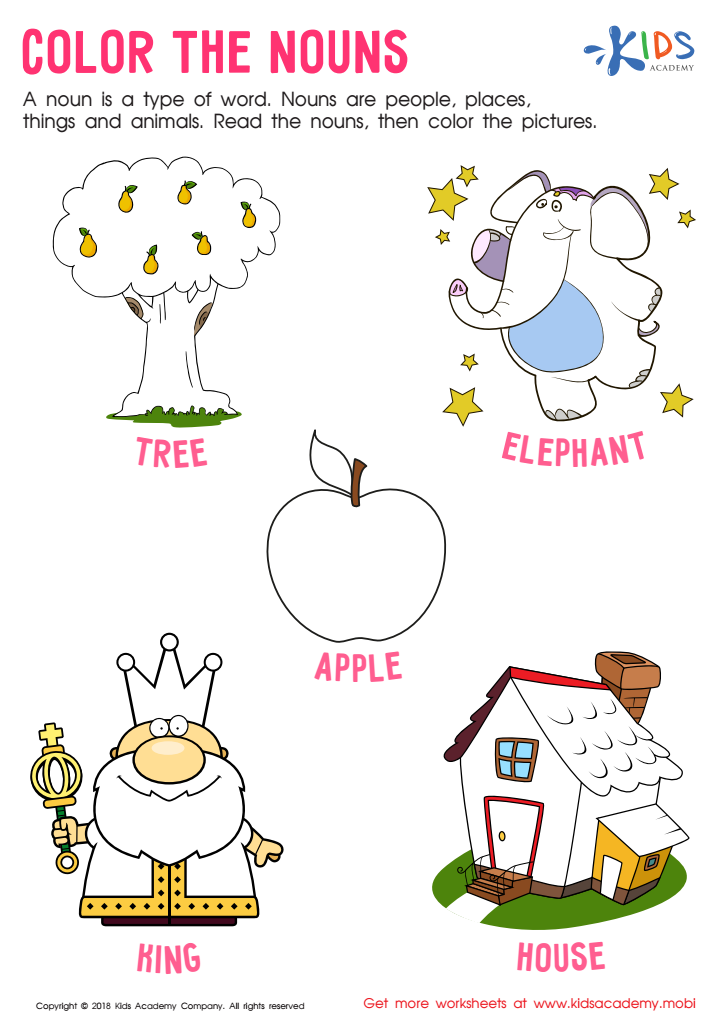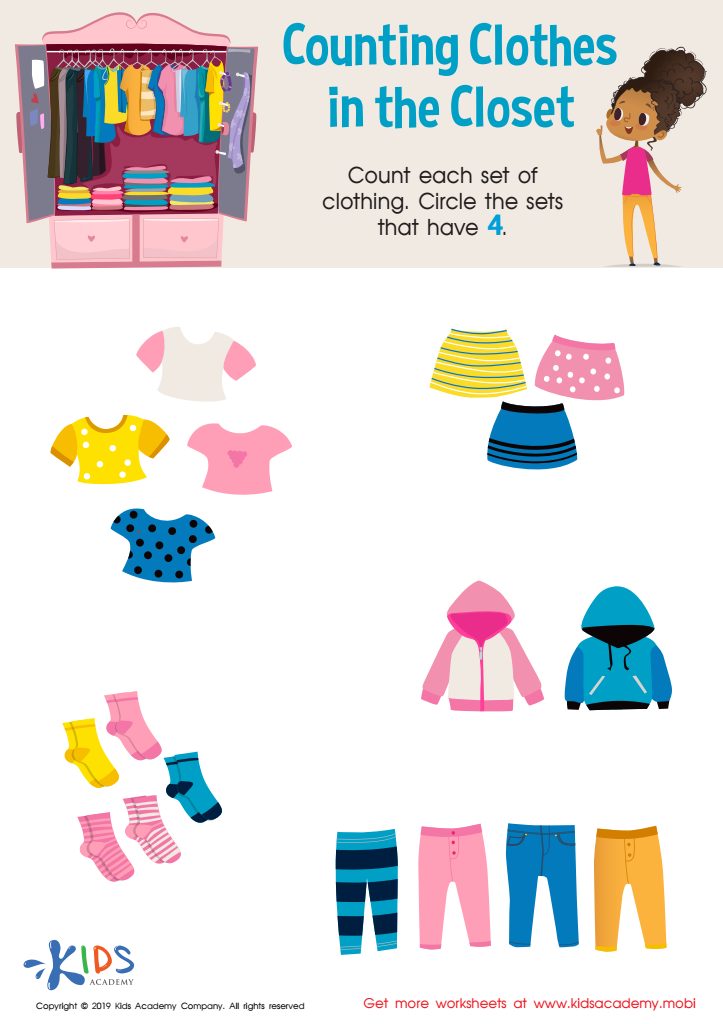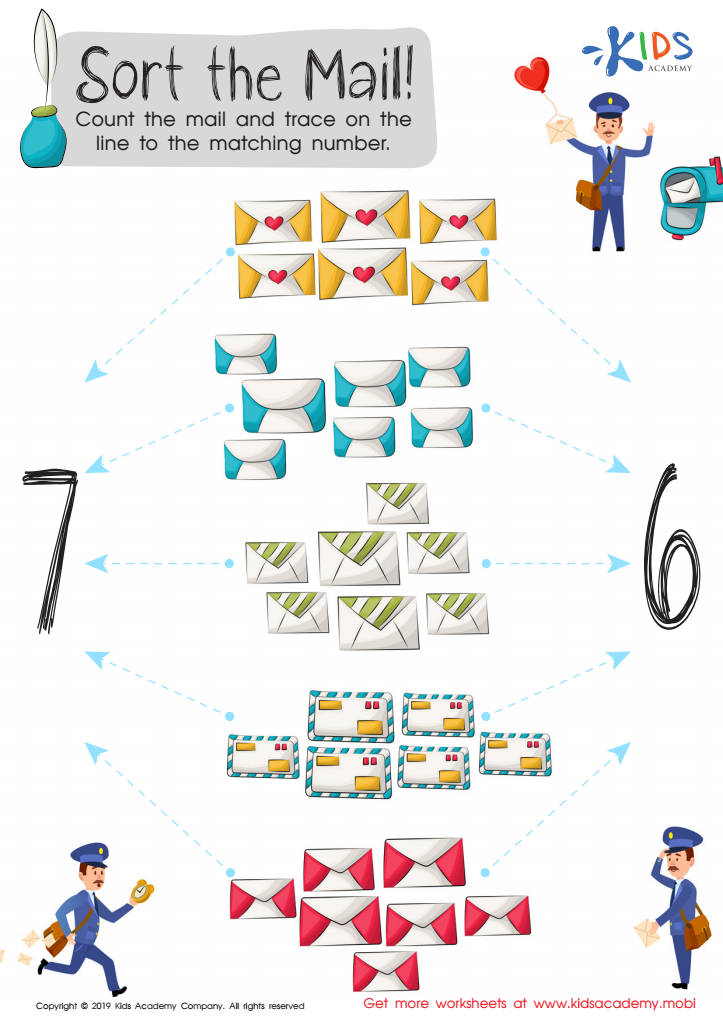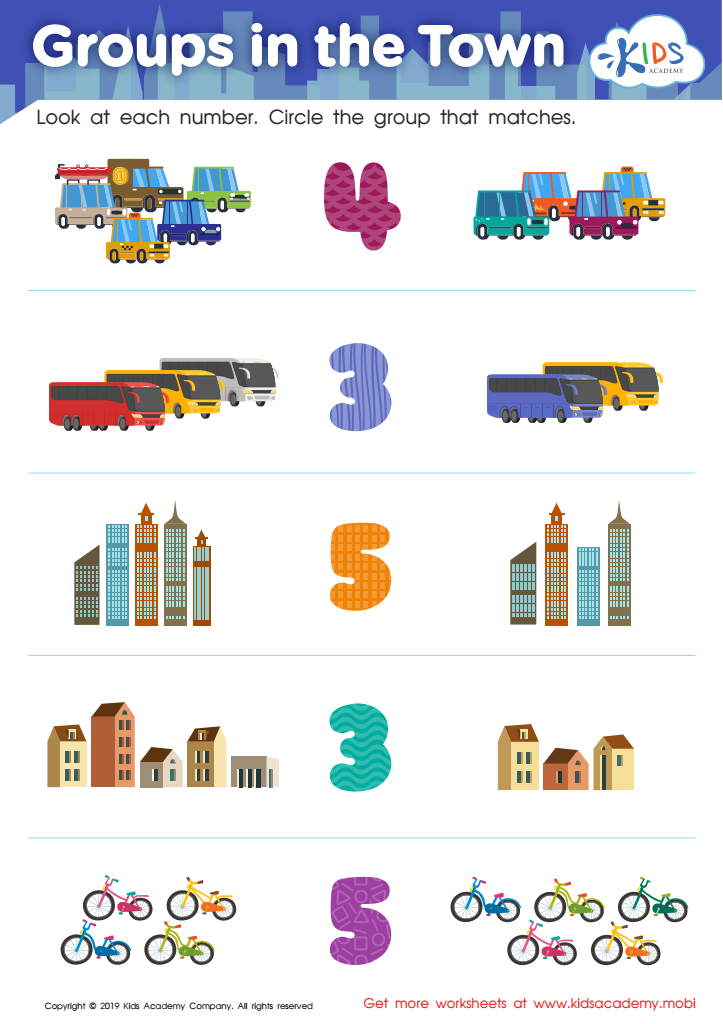Categorization skills Easy Numbers Worksheets for Ages 6-8
4 filtered results
-
From - To
Boost your child's cognitive development with our "Categorization Skills Easy Numbers Worksheets for Ages 6-8." Designed to provide a fun, educational experience, these worksheets enhance numerical understanding and categorization abilities. Perfect for early graders, they ensure foundational math skills are solidified through engaging activities. By differentiating between various numbers and groups, children improve their analytical thinking, setting a strong base for advanced math concepts. Our carefully crafted exercises cater to young learners, making the learning process enjoyable and effective. Give your child the advantage of mastering categorization skills while having fun with numbers! Explore more at Kids Academy.


Color the Nouns Worksheet


Counting Clothes Worksheet


Sort the Mail Worksheet


Groups in the Town Worksheet
Categorization skills and working with easy numbers are foundational elements of cognitive development for children aged 6-8. These skills help children make sense of the world by organizing information into manageable and meaningful groups. This ability enhances memory, supports logical thinking, and improves problem-solving skills, which are essential for academic success and everyday decision-making.
For instance, when children categorize objects or numbers, they learn to recognize patterns, similarities, and differences, which are crucial for mathematical thinking. Understanding categories like shapes, sizes, and numerical values builds a strong base for more complex concepts like geometry, addition, and subtraction. Engaging with easy numbers through games or practical activities solidifies their grasp of basic numerical concepts and prepares them for more challenging mathematical operations.
Beyond mathematics, categorization also supports language development. Children expand their vocabulary by grouping words into categories, helping them understand and communicate more effectively. For example, distinguishing between animals, plants, or transportation types enhances their descriptive language skills.
In essence, developing categorization skills with easy numbers broadens a child’s cognitive horizons. Teachers and parents should nurture these abilities to foster a love of learning and equip children with tools that will benefit their academic journey and everyday experiences.
 Assign to My Students
Assign to My Students




















